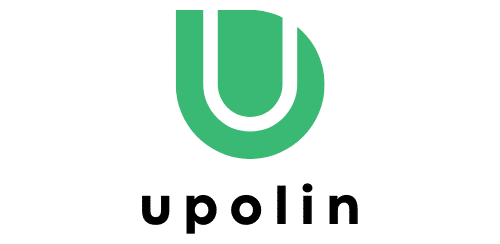What Interventions Can Improve Health Literacy Among Elderly Populations?

Health literacy, the ability to understand, access and use health information, is a significant concern, particularly in older adults. As we age, health-related tasks become more complex and demanding, challenging our health literacy skills. From reading prescription labels to understanding complex medical procedures, the health literacy of elderly people is put to the test every day.
There is a growing body of evidence suggesting that low health literacy in older adults contributes to poor health outcomes, increased hospitalizations, and health care costs. Hence, interventions to improve health literacy among this population are crucial. In this article, we explore evidence-based interventions to enhance health literacy in older adults, drawing insights from key studies and resources like Google Scholar and Crossref.
Dans le meme genre : What Are the Best Foods to Support Healing After Orthopedic Surgery?
How Can Ehealth Interventions Improve Health Literacy?
Ehealth interventions, or the use of technology in delivering health care services and education, are promising in the field of health literacy. They offer an innovative approach to reach and educate older adults, especially those who are home-bound or have limited mobility.
There is a growing trend in the use of eHealth interventions among older adults. A study published via Google Scholar revealed that eHealth interventions can significantly improve health literacy among older adults, particularly when tailored to their needs and capabilities. Personalized, easy-to-understand content, supplemented with audio-visual aids, was found to be particularly effective.
A découvrir également : How Can Low-Intensity Exercise Programs Benefit Chronic Kidney Disease Patients?
Interactive online tools used in eHealth interventions also enable health practitioners to assess an individual’s health literacy level and provide appropriate education based on their needs. This approach fosters a more patient-centered care approach, which is essential for older adults who often have multiple health concerns.
The Role of Functional Literacy Interventions in Health Care
Functional literacy is a fundamental aspect of health literacy. It pertains to the basic skills necessary to read and understand health information, as well as to function effectively in the healthcare environment. Functional literacy interventions are, therefore, an integral part of improving health literacy among older adults.
One such intervention, as suggested by a study found on Crossref, involved the use of ‘teach-back’ techniques in clinical settings. Here, healthcare providers ask patients to repeat the information given to them, ensuring that the information is understood correctly. This method has been found to significantly improve comprehension and recall of health information among older adults, thereby enhancing their health literacy.
Another functional literacy intervention involves simplifying health materials. By using plain language and including clear visuals, health education materials become more accessible and understandable for older adults.
Knowledge-Based Interventions for Health Literacy
Knowledge is power, especially when it comes to health. Knowledge-based interventions focus on increasing an individual’s understanding of health and disease processes, treatments, and preventive measures. These interventions can significantly enhance health literacy among older adults.
Several studies have shown that interactive education sessions, either one-on-one or in group settings, have a positive impact on health literacy. These sessions can cover a wide range of topics, from managing chronic diseases to understanding the importance of preventive health screenings.
Self-management interventions are a subset of knowledge-based interventions where patients are educated about their conditions and how to manage them. This includes understanding symptoms, medication management, nutrition, and physical activity. By empowering older adults with this knowledge, they can take a more active role in their health care, enhancing their health literacy.
The Potential of Community-Based Health Literacy Interventions
Community-based interventions hold immense potential to improve health literacy among older adults. These interventions leverage the power of community resources and social networks to spread health information and promote health literacy.
An example of a community-based intervention is health promotion workshops in community centers. These workshops aim to provide practical health information in a supportive and familiar environment. This method not only increases health literacy but also promotes social interaction, which is beneficial for the mental and emotional health of older adults.
Another community-based intervention is the establishment of health literacy hubs within communities. These hubs provide a go-to place for people to obtain reliable health information and resources. They can also provide training for community members to become health literacy advocates, further spreading health education within the community.
In conclusion, improving health literacy among older adults is a multifaceted task, requiring interventions at multiple levels. Whether it’s through eHealth, functional literacy, knowledge-based, or community-based interventions, there is a clear need for concerted efforts to enhance health literacy among this vulnerable population. Each intervention has its own strengths and potential, and a combination of these approaches may yield the best results.
Empowering the Elderly Through Health Literacy Education
Health literacy is not just about understanding medical jargon or reading prescription labels. It’s about empowering older adults to make informed decisions about their health. Hence, providing health literacy education is another critical intervention that can improve health literacy among this population.
Health literacy education aims to equip older adults with the knowledge and skills needed to navigate the complex world of health care. This can be done through various platforms such as formal classes, workshops, seminars, or even through informal discussions. As per a systematic review found on Google Scholar and Crossref, health literacy education has proven to be effective in increasing the health literacy of older adults.
Health literacy education can cover a broad range of health topics, from understanding chronic diseases, knowing the importance of preventive health screenings, to learning about the health care system. More importantly, it should be tailored to the needs and capabilities of older adults. This can be achieved by delivering the information in a manner that is easily understandable, using plain language, incorporating visuals, and providing practical examples.
Moreover, it’s also important to incorporate functional health literacy skills into the education program. This includes teaching older adults how to read and understand health materials, navigate the health care system, communicate with health care providers, and perform health-related calculations such as measuring medication doses. By doing so, we are not only increasing their knowledge but also equipping them with the skills to apply this knowledge, thereby enhancing their health literacy.
Conclusion: The Way Forward for Improving Health Literacy Among Elderly Populations
Improving health literacy among older adults is an urgent public health concern that requires strategic and comprehensive interventions. The interventions discussed in this article – eHealth, functional literacy, knowledge-based, and community-based interventions, as well as health literacy education – provide a glimpse of what can be done to enhance health literacy in this population.
Each of these interventions holds promise. However, it is crucial to remember that there is no one-size-fits-all solution. Interventions should be tailored according to the needs, capabilities, and preferences of older adults. This requires a deep understanding of the older adult population and regular assessment of their health literacy levels.
Moreover, improving health literacy is not just the responsibility of the health care sector. It requires the involvement of various stakeholders, including older adults themselves, their caregivers, health care providers, educators, policy-makers, and the community. This calls for a coordinated and concerted effort, not only to improve health literacy but also to create a health-literate society.
Finally, more research is needed to explore innovative strategies for improving health literacy among older adults. Future studies can draw insights from key databases such as Google Scholar, Crossref, PubMed, and DOI to build on the existing body of knowledge. By doing so, we can ensure that our interventions are evidence-based, effective, and relevant, thereby improving the health and well-being of our older adults.
